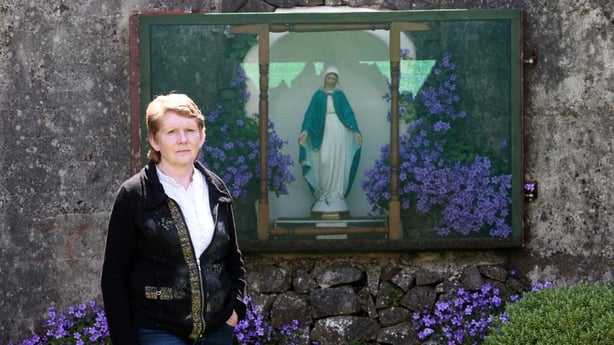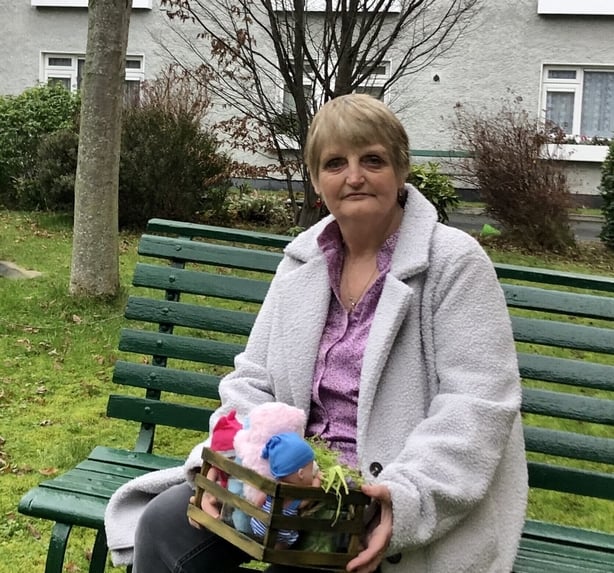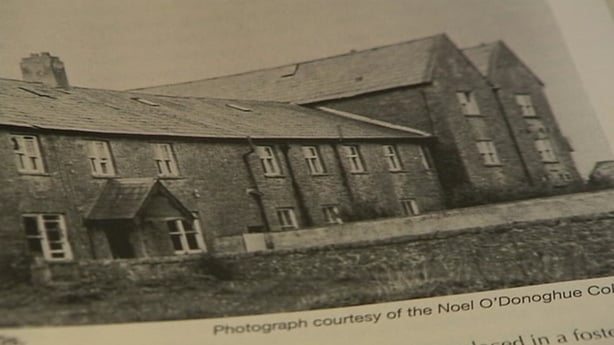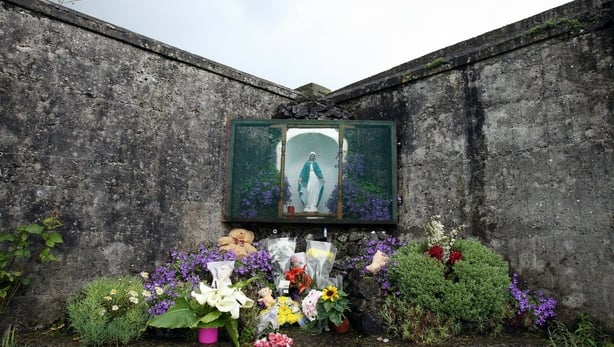The local historian whose work shone a spotlight on practices at mother-and-baby homes has said she is disappointed by today's report.
Catherine Corless said she had no further enlightenment after listening to the Taoiseach and Minister for Children, after they made a presentation to survivors this afternoon.
She said she had hoped that survivors would get some idea of what would follow after the publication of the report.
But she said instead they got a lot of "political lingo", with the Government "glossing over" what went on in the homes investigated.
Ms Corless said out of a 3,000 page report, she was very puzzled that there were only 15 pages of recommendations made by the commission.
She said she hoped that the actions that would follow the report would be better than the initial response from Government.
She is also concerned about a possible delay in the process to commence exhumations and DNA testing of remains found at the site of the former Home in Tuam.
Ms Corless said it could be the end of the year before legislation allowing this would be in place and that this would amount to a further delay for those wanting answers.

On RTÉ's Drivetime, Ms Corless urged the Government to allow exhumation of the babies at the Tuam site earlier than the end of the year, as was announced by the Minister for Children today.
"We have waited three years after the babies were discovered, and then another year, why on earth is it taking until the end of the year, when the Oireachtas can do it within a few weeks if they wanted."
She described the Government's webinar with survivors today as a "white wash, full of political jargon".
Ms Corless said survivors felt "deflated" after the session, and that there was "utter confusion" among them.
She said there was too much of a focus on the contribution of society to the cruelty which was shown to the women and children who were at the mother-and-baby homes.
Survivors "will never have any peace" without a formal apology from the religious orders, "at whose hands they suffered", she said.
Ms Corless said survivors "need an acknowledgment from those at whose hands they suffered, that "we [they] did wrong".
We need your consent to load this rte-player contentWe use rte-player to manage extra content that can set cookies on your device and collect data about your activity. Please review their details and accept them to load the content.Manage Preferences
"An apology from the Vatican would be good, but it needs to come from the religious order, and also the local areas of the homes."
Ms Corless said she had not had time to read the full report but she said the webinar "skimmed over" the issue of illegal adoption, and those around the deaths of babies and toddlers.
"We need to know what happened in those deaths. Why so many babies died? How did the burials take place? Who was responsible for putting the bodies of babies and toddlers into sewerage areas."

'We have waited too long'
A mother who gave birth to a baby boy in a mother-and-baby home in Dublin, has said that there should be no more delays in issuing a State apology saying that survivors had waited and waited too long.
Sheila O'Byrn said people needed to think about the survivors who are very old. She said that they need to be put first instead of second.
Ms O'Byrne gave birth to her son in St Patrick's mother and baby home. She was 19 when she found out she was pregnant in 1976.
Reacting to the report she called for a full redress scheme and private counselling for survivors.
She said she wanted the well-being of survivors to be taken care of and for them to be left comfortable in their latter years so that they do not have to be left with worries, because she said their had been left with a terrible memory.
Ms O'Byrne described her experience in the mother-and-baby home as very difficult. She said it is a memory and a past that will never leave her.
She said certain colours, floors, smells trigger her memories. However she said that she thinks she is lucky to be alive to tell the story.
Ms O'Byrne said they worked seven days a week in the home and it was constant work there. She was told that this was punishment for "breaking the original sin".
She says everyone in the home was punished: mothers, babies and the children that were kept in the building. She says that she thinks about them a lot.
Ms O'Byrne said she believes there was a lot left out of the report and she does not feel that they got all the answers that they were looking for.
When her son was born, Ms O'Byrne said they said 'What have we got here? What is this?' because he was not white. She says she was told that she was not allowed to touch him.
After years of trying to find him, Ms O'Byrne was finally reunited again with her son. She is still in contact with him and says that they now have a great relationship.
However she said she also often thinks about the babies who died and never got outside the gates to witness how far they have come with their fight for justice.
She said that she wants to see justice for all the babies in the unmarked graves and she wants them to be recognised.

Carmel Larkin, who was a child at the Bon Secours Home in Tuam, has said she still does not know anything about her birth mother.
She was fostered out at the age of five in 1954, moving to Co Mayo.
Speaking on RTÉ's News at One, Ms Larkin said that while her foster family were "lovely people" she still knows "absolutely nothing" about her birth mother.
She has been given "mixed messages" from Tusla regarding her mother's grave, she said, with one statement saying she was buried in a mass grave, while another said she is buried in Ballina.
"I don't have a photograph of her", Ms Larkin said.
"I know nothing about my mother, absolutely nothing. It feels like you're a tree growing up in a massive field and you're all on your own. You've no identity."
She said she hopes legislation is passed granting adopted and fostered people access to their records.
She said survivors need counselling and healthcare urgently, and that many do not have a lot of time left to avail of such services.
"They're going to issue an apology tomorrow, sure why would they issue an apology when we haven't even read the report?" Ms Larkin said.
"What good is an apology? I think they should apologise in six months' time when we have some knowledge of what the report is about."

PJ Haverty, who spent the first six-and-a-half years of his life at the Tuam Mother and Baby Home, said his only memory of that time is how he was treated at school.
He recalls having to go in ten minutes late and leave ten minutes early "so you wouldn't go in with the other kids, kids where the mothers and fathers were married."
As a Catholic child who was baptised, he said he could not understand why he was being treated differently.
"We weren't allowed to play with them", Mr Haverty said, adding that some students used to run ahead to school when they saw the 'home babies' because the punishment for lateness was to be sat next to them.
Mr Haverty said "everything changed" when he was fostered out.
"I had a mother and father then that cared for me and looked after me", he said.
"I enjoyed working on the farm with animals and things that I had never seen before. But I was the lucky one."
He said his foster mother always believed he should meet his birth mother and persuaded the social worker to provide an address.
It took a good few years, he said, but he found out she was living in Brixton in England, although they did not form a bond.
"I was scared and she was scared as well," Mr Haverty said.
"Because I'd say she was uneasy that I would blame her for leaving me there and going off. I was delighted that I did get to meet her and she was able to tell me what happened."
Mr Haverty said he received a phonecall from Tusla a month before Christmas informing him that a file belonging to him had been found.
He had been seeking information "for quite some time" he said, but was told there was nothing.
"But it's amazing that they found one just when the investigation had finished up. I got an awful shock to realise I had been on my way to a family in America."
Mr Haverty said he would like the Taoiseach to "hold back" on making an apology until survivors have absorbed the report.
"I don't want him coming out, apologising and then walking away", he said.
"If he does apologise, I want to see something being done. That would make his apology worthwhile - if he was able to say 'we are going to look after these people who need help'."
He said many survivors are "in a bad state" and should not have to beg for help.
"I hope the Taoiseach will do that. And I hope too that he will excavate these grounds throughout Ireland as well, not just Tuam."
Additional reporting Helen Donohue







